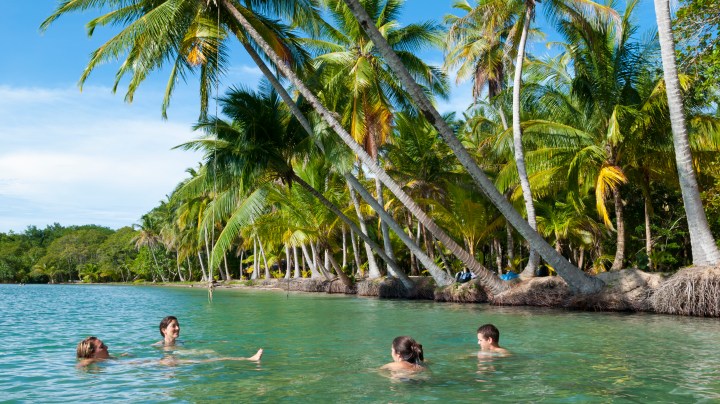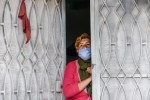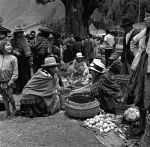Why Dozens of Festival-Goers Are Stranded in Panama

Four travelers from the United States, a young man and three women, enjoying the tranquil waters at Boca del Drago in Bocas del Toro, Panama. Getty Images
For years, a group of British folks have hosted a spiritual music festival of sorts named “Tribal Gathering” on a little-known area of Panama called Playa Chiquita. This year, the EDM-loving group was left stranded on the isthmus due to COVID-19 and the measures the country’s government put in place to further prevent its spread.
As the name implies, the 16-day event brings together Indigenous musicians, creatives and spiritual leaders from tribes around the world. Although the event is referred to as a “cultural exchange,” it is—from the looks of it—one-sided. Attendees are mostly white Europeans, whereas the musicians and workshop leaders are from different parts of Latin America, India, Asia and more.
Panama is currently one of the most affected countries in Central America, with at least 6,021 reported cases of coronavirus. About 13% of Panama’s population is Indigenous. The little-explored, locally treasured area is, I imagine, a cost-effective festival dream for those who fly in. How much of the profit goes to the communities they are benefitting from is unknown.
“At first it was like paradise,” one attendee told Vice in their short documentary from onsite, “but when you are locked in, it is not paradise anymore.”

The publication deemed the event “the last festival on Earth.”
Most Indigenous people left the area early on, as it is custom for them to leave 12 days into the festival, allowing for other programming focused on music and partying.
Hundreds of people arrived on February 29 and have been there since. Tensions, naturally, grew, both amongst themselves and those who are now responsible for them.

While some people see it as an opportunity to work on their spiritual selves, “hug Mother Earth” and the likes, others are indignant and are seen screaming at the National Police when notified they wouldn’t be allowed to leave. A few stayed on the beach, while others went to Panama City to await their exit there.
At the onset of the festival, police attempted to call off the event perhaps for fear of this very situation. Organizers persuaded them to allow the festival to finish, according to The Guardian. By the time it did, on March 15, the stakes were too high.
One person who did manage to leave seemingly even regrets doing so.
“I don’t know how I did it… I put on my pirate hat, that might have helped,” Berry Rees, a tree surgeon (yes, that’s a thing) from the UK who snuck away from the armed guards told The Guardian. “I was thinking, why did I leave paradise? But I didn’t have much money and I didn’t want to be a charity case.”
It may be weeks before anyone can go in or out of Panama. Further details, as well as the appropriate form for U.S. citizens to fill out if stranded, can be found here.